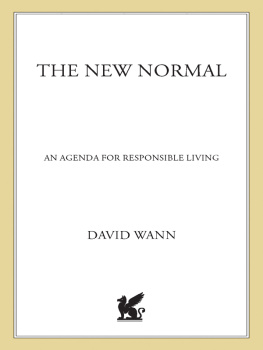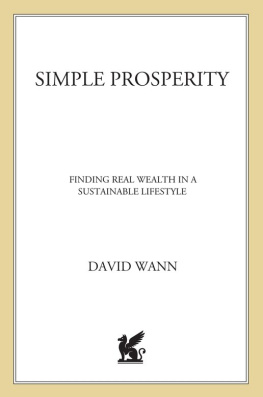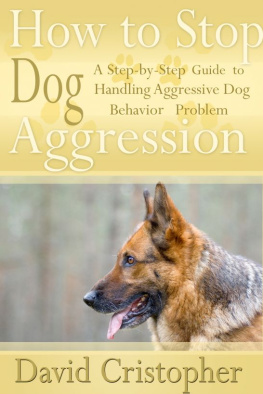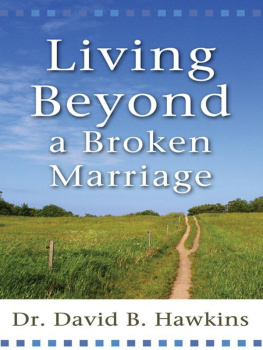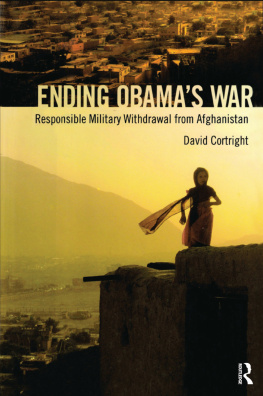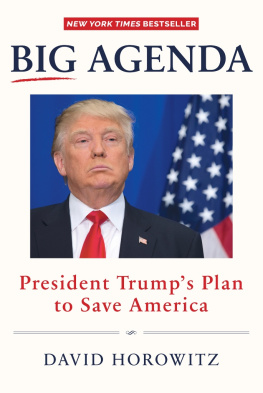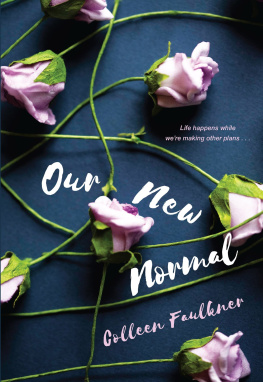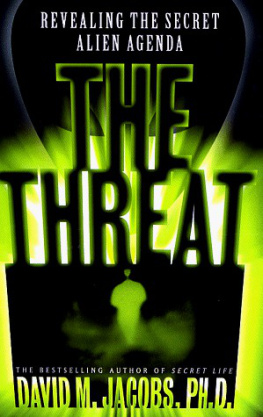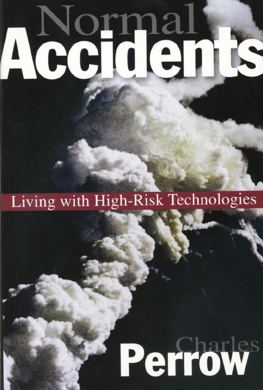David Wann - The New Normal: An Agenda for Responsible Living
Here you can read online David Wann - The New Normal: An Agenda for Responsible Living full text of the book (entire story) in english for free. Download pdf and epub, get meaning, cover and reviews about this ebook. year: 2011, publisher: St. Martin’s Griffin, genre: Science. Description of the work, (preface) as well as reviews are available. Best literature library LitArk.com created for fans of good reading and offers a wide selection of genres:
Romance novel
Science fiction
Adventure
Detective
Science
History
Home and family
Prose
Art
Politics
Computer
Non-fiction
Religion
Business
Children
Humor
Choose a favorite category and find really read worthwhile books. Enjoy immersion in the world of imagination, feel the emotions of the characters or learn something new for yourself, make an fascinating discovery.
- Book:The New Normal: An Agenda for Responsible Living
- Author:
- Publisher:St. Martin’s Griffin
- Genre:
- Year:2011
- Rating:5 / 5
- Favourites:Add to favourites
- Your mark:
- 100
- 1
- 2
- 3
- 4
- 5
The New Normal: An Agenda for Responsible Living: summary, description and annotation
We offer to read an annotation, description, summary or preface (depends on what the author of the book "The New Normal: An Agenda for Responsible Living" wrote himself). If you haven't found the necessary information about the book — write in the comments, we will try to find it.
David Wann: author's other books
Who wrote The New Normal: An Agenda for Responsible Living? Find out the surname, the name of the author of the book and a list of all author's works by series.
The New Normal: An Agenda for Responsible Living — read online for free the complete book (whole text) full work
Below is the text of the book, divided by pages. System saving the place of the last page read, allows you to conveniently read the book "The New Normal: An Agenda for Responsible Living" online for free, without having to search again every time where you left off. Put a bookmark, and you can go to the page where you finished reading at any time.
Font size:
Interval:
Bookmark:

This is a valuable and concise digest of much that weve figured out in recent years, about health, stress, joy, community. The only thing it wont tell you how to do is make more money; instead, it will let you see that you may already have enough.
Bill McKibben, author of Deep Economy: The Wealth of Communities and the Durable Future
Perhaps the highest compliment one writer can give another is I wish Id said that! David Wann has woven together all the right stuff to make a compelling and appealing case for the abundance of enough and the poverty of more. He stands firmly with one foot in the intimate details of daily life and the other in the shocking details of the degradation of healthy ecosystems and communities. Both the appeal of a better personal life and the horror of what will be upon us if we dont act should get us all on the Simple Prosperity bandwagon.
Vicki Robin, coauthor of Your Money or Your Life and cofounder of Conversation Cafs
Dave Wanns recipes from his own experience in Simple Prosperity are a breath of fresh air, and just what we need for a saner future. They include ideas, sound research, and down-to-earth advice we can all use. This book is also much more: a friendly, personal guidebook for living a more enjoyable, healthy, loving life.
Hazel Henderson, author of Ethical Markets: Growing the Green Economy
If ever there was a right book at the right time, Simple Prosperity is it. This country needs this book.
Lester R. Brown, president of Earth Policy Institute and author of Plan B 2.0: Rescuing a Planet Under Stress and a Civilization in Trouble
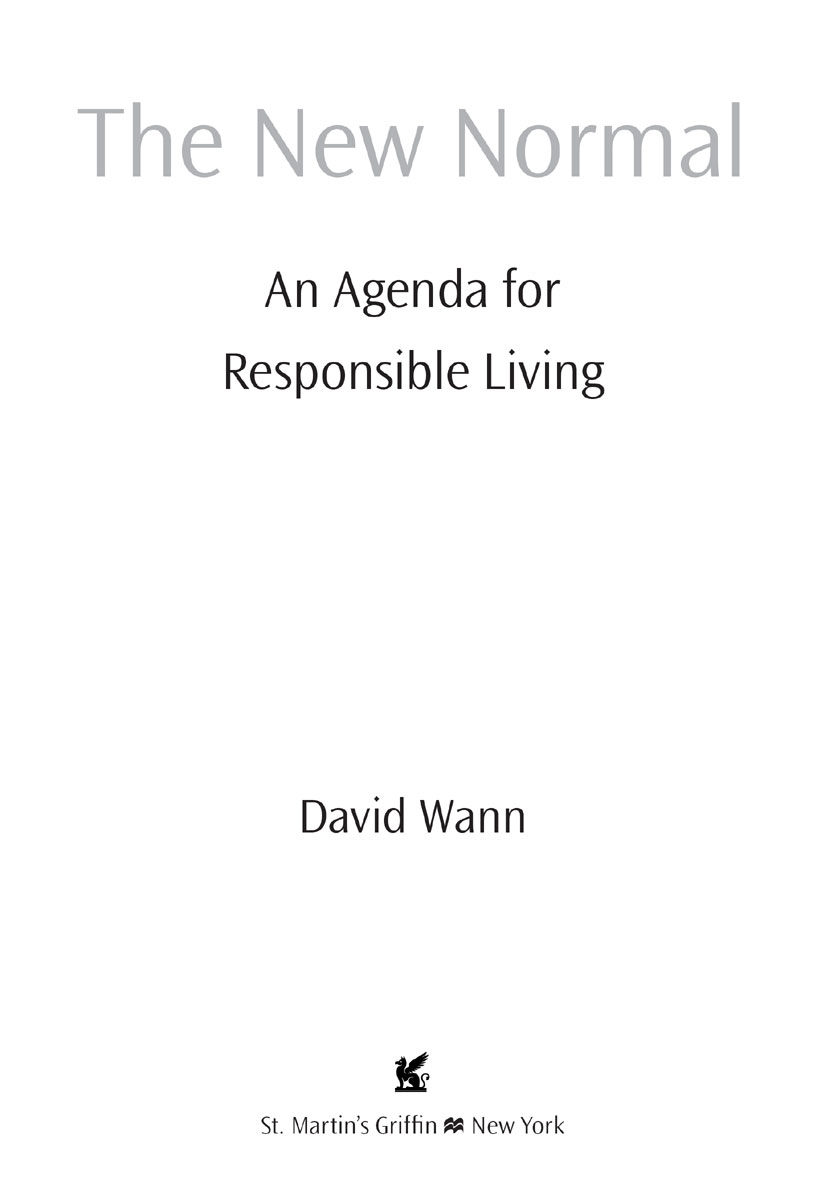
Introduction:
Once Upon a Paradigm, When Growth Was King
This book could never have been written without the thorough, self-directed work of people who are truly champions of change and guardians of the future. In particular, I drew on the research of the Earth Policy Institute and the Worldwatch Institute for data that reveal where we are as a civilization and where we need to go. My sincerest thanks to Lester Brown, Christopher Flavin, and their colleagues for clearheaded, tireless reporting and advocacy. I also relied heavily on stories in Yes! magazine, Ode magazine, the New York Times, and Time magazine, and on 60 Minutes and National Public Radio. Online resources like Daily Grist, the Environmental News Network, and Worldchanging are incredible sources, too.
There are many other visionaries whose lives and work have especially inspired me over the years. Wendell Berry, Dana Meadows, Amory Lovins, Paul Hawken, Bill McKibben, Hazel Henderson, and David Korten are a few of this generations superheroeslantern bearers whose work has long been powered by generosity, hope, and a tenacious belief in humanitys talents and instincts. I encourage readers to peruse my short list of recommended readings at the end of this book, but of course what converts ideas to reality is the hands-on work of activists and practitioners: human rights, peace, and environmental activists; biologists and bioneers; green engineers and entrepreneurs; policy makers, teachers, spiritual mentors, artists, and web weavers in all walks of life.
Thank you!

The cultural framework we live inour way of thinkingwill either save the day or drop the fragile egg that rightfully belongs to the future. We usually assume that huge challenges can only be finessed with technical, political, and economic fixes, but we forget that all three are programmed by human culture, and it is there that we can leverage change most quickly and effectively. What do we really mean by this fuzzy term culture? Its not just paintings and music, not just opinions, values, and styles; its nothing less than the lens through which we perceive realitythe customs, traditions, symbols, norms, motivators, and direction that constitute a way of life. Right now, our culture is confused, trapped between the old paradigmin which economic growth is kingand a new paradigm that correctly perceives limits to growth and acknowledges its potentially catastrophic social and environmental costs. We are looking for a new identitya new normal that is more secure, stable, and sensible.
Our most influential institutionsschools, family, government, business, and the mediainstruct and insist that the shortest route to meaning, happiness, and equality is through the marketplace: a bustling, bumbling universe of production, transaction, and consumption. Centuries ago, economies of the developed world geared up to produce more than we need to be happy, and we obediently bent our way of life out of shape to keep up with overproduction. Although this worn-out paradigm continues to accelerate, we ask ourselves, nervously, Where is this sports car taking us? Does it have dependable brakes?
A primary source of cultural dissonance is the disparity between institutions and intuitions. A harnessed, institutional mind-set says, Full speed aheadlook what weve created! But our intuitionwith the full force of evolution behind itcautions, Slow downlook what we are destroying! This duality is very familiar to those who study nature. Successful living systems (including humans) typically progress from being highly productive yet wasteful to being highly protective and efficient. In their most mature, climax stages, biological systems have learned how to optimize diversity, resourcefulness, and resilience, weaving partnerships among species to make use of each scrap of resource, and to survive threats from outside the system (such as climate changes). This book maps a pathway to cultural maturity, a natural and achievable destination.
The overall theme of nature is not bloodthirsty competition, but functional, celebratory interdependence and cooperation. Ecosystemsand civilizationssucceed by building on the accomplishments of preceding systems. For example, shade-loving Douglas fir trees take root in the shadow of Ponderosa pines, which in turn get their start in soil built by grass roots and microbes. A mature civilization does not violate natural realities and laws; however, there is more than enough evidence to charge our civilization with planet-slaughter. To clear our name, our generations pivotal assignment is to design a systemically more mature way of fitting in. Our intuition tells us that its not higher profits and faster transactions we crave but greater value. If we get more use out of each electron and each cubic foot of soil, if we learn to meet our needs squarely for health, food, social connection, and shelter, then we wont need or want as much moneyindividually or collectively. At that point, our way of life can be less expensive, less destructiveand more satisfying. It isnt sacrifice, and it isnt threatening, if everyone does it togetherif rich and poor (people and nations) meet somewhere in the middle, in terms of material wealth. Rather than enduring lives of debt, doubt, fear, and stress, we can create a lifestyle and culture filled with the affluence of time, health, and stimulation. But first we have to come out of denial, acknowledging that our excessive, wasteful way of life cant and wont continue. Game over. Like participants in a 12-step program, we need to confess that our way of life isnt working. Only then can we make appropriate course corrections in policies, technologies, and everyday habitsall contained within the rich matrix we call culture.
Font size:
Interval:
Bookmark:
Similar books «The New Normal: An Agenda for Responsible Living»
Look at similar books to The New Normal: An Agenda for Responsible Living. We have selected literature similar in name and meaning in the hope of providing readers with more options to find new, interesting, not yet read works.
Discussion, reviews of the book The New Normal: An Agenda for Responsible Living and just readers' own opinions. Leave your comments, write what you think about the work, its meaning or the main characters. Specify what exactly you liked and what you didn't like, and why you think so.

